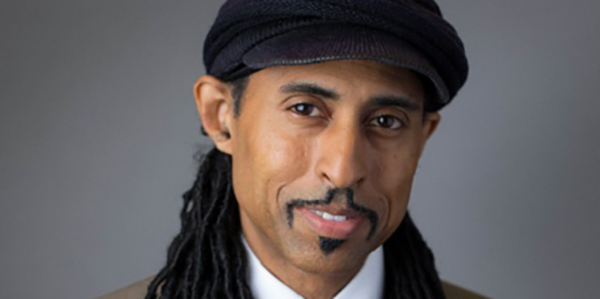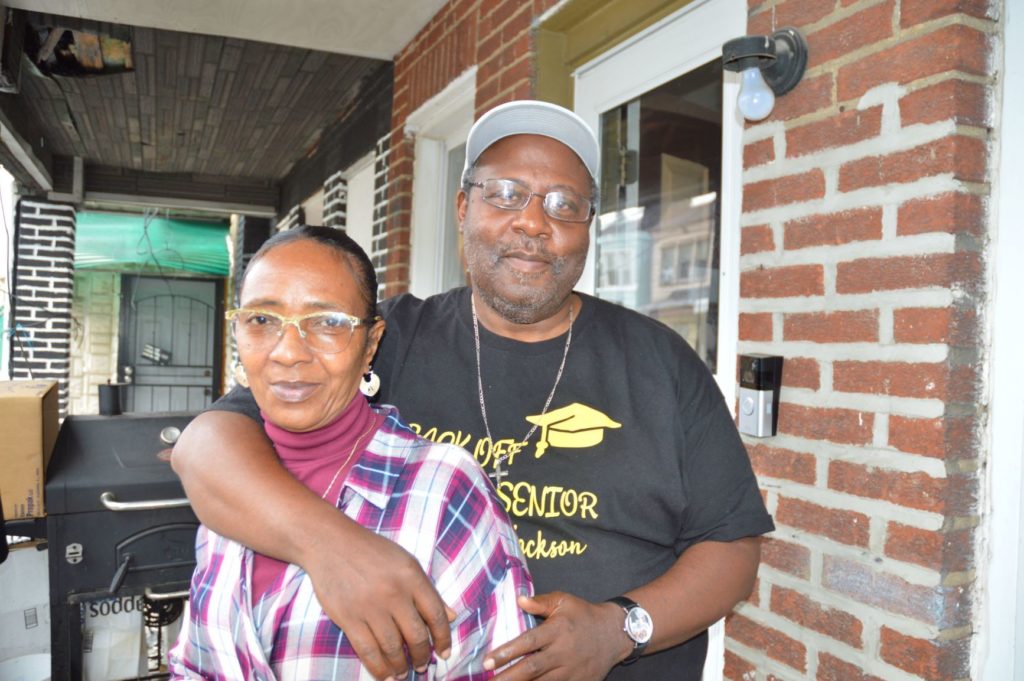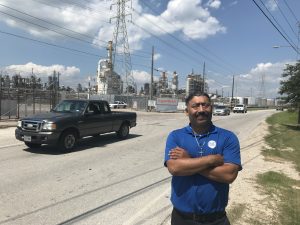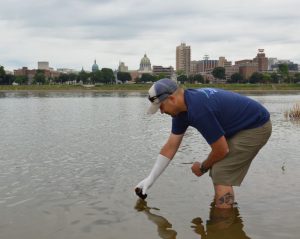The Environmental Integrity Podcast discusses important environmental news and reports by the nonprofit Environmental Integrity Project.
3/27/24: Abandoned oil and gas wells pose threat to carbon storage projects
Louisiana is one of the hotspots in the U.S. for sequestration projects that trap carbon dioxide (CO2) underground to protect the climate. Companies are planning 58 storage wells at 24 sites across the state. However, experts say a century of oil and gas drilling has left thousands of pathways for CO2 to squeeze its way back out into the atmosphere, potentially eroding any climate benefits and creating a safety threat for nearby residents in the event of a massive rupture or leak. Two recent reports examine the threat from the more than 186,000 abandoned oil and gas wells in Louisiana.
3/14/24: Investigation reveals billions in taxpayer subsidies to U.S. plastics manufacturers
1/5/24: Despite lack of permit, federal authorities allow LNG terminal in Puerto Rico to continue operating
When New York-based company New Fortress Energy upgraded the largest power plant in San Juan, Puerto Rico, to run on natural gas, the decision was supposed to bring relief to an island that struggles with energy security and whose electric grid experiences frequent outages after storms and earthquakes. However, the company is now under fire from local groups after building a liquid natural gas (LNG) import facility in San Juan Bay without obtaining authorization from the Federal Energy Regulatory Commission (FERC). In this episode, we speak with three San Juan residents who are asking FERC to hold a public meeting in Puerto Rico to address community concerns about the terminal.
12/11/23: Biden Administration proposes to allow disposal of carbon waste beneath national forests
Last month, the Biden Administration’s U.S. Forest Service proposed a regulatory change that would allow companies to bury in national forests carbon dioxide waste captured from petrochemical plants and other industries to keep the greenhouse gas out of the atmosphere. Critics say the proposal would grant fossil fuel and carbon disposal companies access to public property for decades, possibly forever, in support of flawed technology. It could also put visitors to national forests at risk, if the gas leaks out. This week, we interview Victoria Bogdan Tejeda, staff attorney for the Center for Biological Diversity, who represents a coalition of groups opposing the dumping of industrial waste on public lands. The public can comment on the proposal through this link.
11/21/23: What is Chemical Plastics Recycling? It’s a Dangerous Deception, a New Report Reveals
This week we interview Judith Enck, President of Beyond Plastics, to learn more about their new report, “Chemical Recycling: A Dangerous Deception,” that takes aim at a growing form of plastics reprocessing called “advanced recycling.” While often portrayed as a climate-smart solution to plastics waste, the truth surrounding “advanced recycling” is that it is an energy-intensive, heavily polluting industry. Despite industry claims, chemical recycling produces a dirty form of fuel and chemical byproducts that require expensive refining processes to convert them into new plastics. It’s more of a public relations campaign designed to prolong the life of fossil fuel-based plastics, according to Beyond Plastics’ latest report.
11/1/23: TAXPAYER SUBSIDIES FOR NATURAL GAS-FIRED POWER PLANTS ON THE BALLOT IN TEXAS
Next week, Texas voters will be voting on a constitutional amendment that would provide $10 billion in taxpayer funding to build more natural gas-fired power plants in the Lone Star State. The proposal, called “Proposition 7,” would mean a new public subsidy for fossil fuels at a time of climate crisis, in a state with a powerful oil and gas industry that already gets most of its electricity from natural gas. Critics argue that the subsidy would give an unfair market advantage over against cheaper and cleaner power sources, such as solar farms or wind turbines. We interview Adrian Shelley, Texas Director of Public Citizen, about the proposal and why he thinks the new “Texas energy fund” would be wasteful and counter-productive.
10/11/23: OFFSHORE DRILLING IN THE GULF OF MEXICO VS. AN ENDANGERED SPECIES OF WHALE
The Biden Administration recently offered leases for sale to oil and gas companies to allow drilling on 67 million acres in the Gulf of Mexico. One might think that the oil and gas industry would be thrilled to win access to a vast swath of the Gulf from Texas to Florida. But the industry sued because the administration plans to block drilling on a small percentage of the underwater acres to protect a threatened species of whale: the Rice’s whale. Only about 51 of these critically endangered baleen whales are believed to survive in the world. We talk to Brendan Gibbons, Editor and Writer for Oil & Gas Watch News, about the legal battle over drilling and conservation. We also tackle a broader subject: Why the Biden Administration, which pledged to cut back on drilling to fight climate change, is allowing record levels of oil and gas extraction in the U.S. You can read Brendan’s full article here.
9/27/23: THE ALUMINUM PARADOX: HOW A METAL ESSENTIAL FOR CLEAN ENERGY HAS A DARK SIDE
Aluminum is a key component in solar panels, wind turbines, electric vehicles, and other projects essential for combating climate change. As demand for low-carbon products grows, aluminum demand is projected to soar 40 percent by 2030. But production of this lightweight metal is energy-intensive and pollution heavy, including greenhouse gas emissions from fossil fuels, sulfur dioxide from smelters, destructive mining practices, and mercury contamination of rivers. Nadia Steinzor, researcher and policy analyst with the Environmental Integrity Project, talks about her new report, “The Aluminum Paradox: Vital for Clean Energy, but also a Major Source of Greenhouse Gases, Air and Water Pollution.” Steinzor explains how the U.S. could boost aluminum production – and create American jobs — while also cleaning up aluminum production, including by using cleaner fuels and installing air pollution control devices called “scrubbers” on smelting plants. The full text report can be found here.
6/12/23: Oil Company Receives Taxpayer Funding to BURY Carbon Waste Beneath Gulf of Mexico
A Dallas-based company called Cox Oil and partners recently received $8.4 million in federal taxpayer funding to build a 110-mile carbon dioxide pipeline and dumping ground beneath the floor of the Gulf of Mexico. The proposed “Louisiana Offshore CO2 Hub” would take liquefied carbon dioxide from petrochemical plants in Geismar, Louisiana, and pump the waste into oil and gas wells in the Gulf south of Grand Isle, both to store the greenhouse-gas pollution and force more oil and gas out of the wells. Many local environmentalists and fishermen complain about the project, which could destroy 800 acres of wetlands in an ecologically fragile area.
The carbon burial ground off Grand Isle is one of almost 30 planned for Louisiana, and more than 100 nationally, because of billions of dollars in taxpayer subsidies for carbon capture in the Biden Administration’s Inflation Reduction Act. Scott Eustice, Community Science Director of the nonprofit organization Healthy Gulf, and Justin Solet, a fisherman and member of the Native American United Houma Nation, discuss their objections to the carbon pipelines and dumping grounds planned for Louisiana. “Basically, we’re rats in a laboratory,” Solet said. “And they are forcing this carbon waste injection down our throats, trying to see if it’s going to work.”
5/15/23: SUING EPA OVER ITS FAILURE TO REGULATE PETROCHEMICAL INDUSTRY WATER POLLUTION
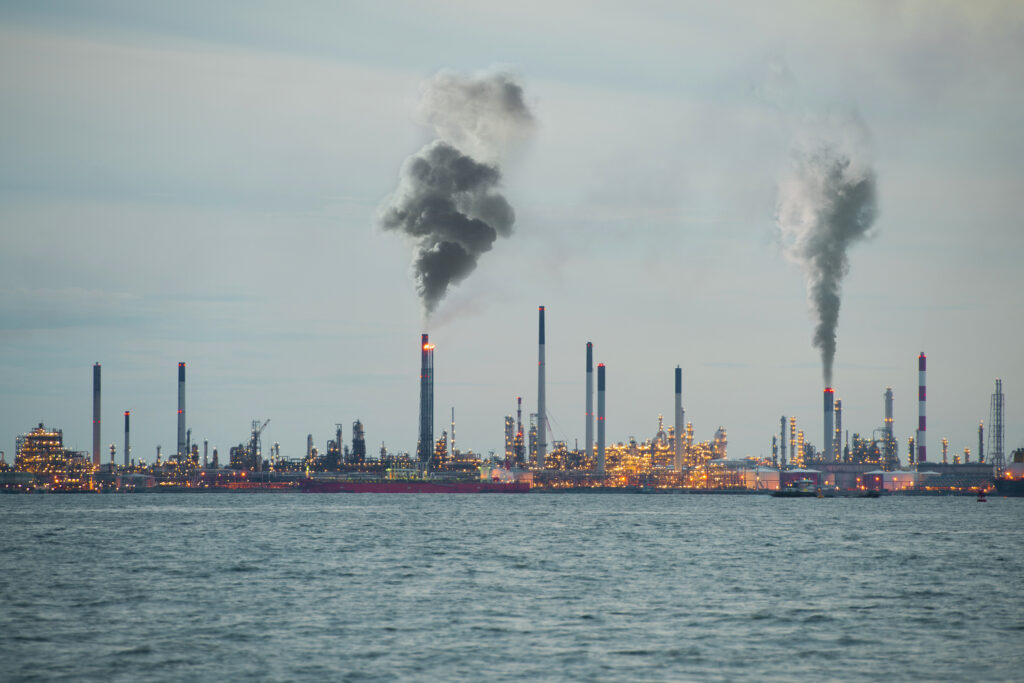
On April 11, 2023, the Environmental Integrity Project (EIP) and 12 allied organizations sued EPA over its failure to regulate billions of gallons of water pollution pouring out of oil refineries and petrochemical industry factories across the U.S., as required by the federal Clean Water Act. EIP’s Deputy Director, Jen Duggan, explains why we took EPA to court during an online press conference with clean water advocates from across the country, including in Houston, San Francisco, Chicago, and Louisiana. For more, click here.
1/05/22: THE CIVIL RIGHTS FIGHT AGAINST DEADLY AIR POLLUTION
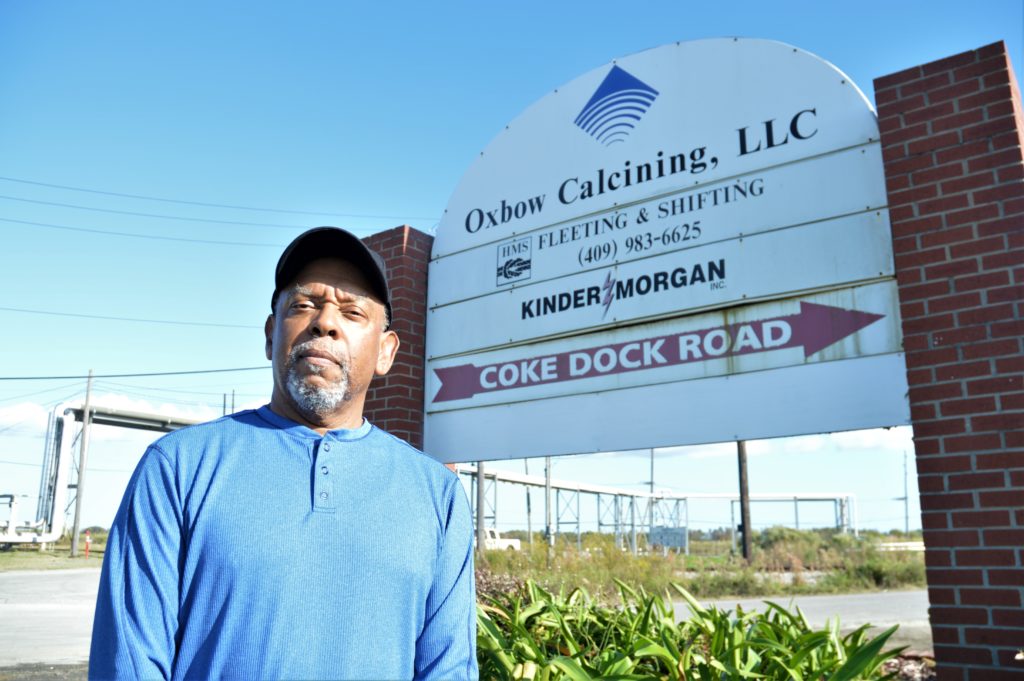
John Beard is a former Exxon Mobil oil refinery operator and firefighter from Port Arthur, Texas. Like his father before him, he labored his whole life in the refineries that surround this lower-income city on the Gulf Coast east of Houston. When Beard finally retired after 38 years in 2017, he decided to make a radical change. He devoted himself, full time, to fighting against the air pollution, chemical threats, climate change and coastal flooding caused by the fossil fuel industry that he saw devastating the mostly African-American community where he grew up. Working with the Environmental Integrity Project and Lone Star Legal Aid, he recently succeeded in petitioning the Biden EPA to launch an investigation of the Texas Commission on Environmental Quality for allegedly violating the civil rights of Port Arthur residents by allowing a petroleum processing plant owned by billionaire William Koch to release tons of potentially deadly sulfur dioxide air pollution every year without any modern pollution control equipment.
11/08/21: FREQUENT VIOLATIONS BY POULTRY INDUSTRY, BUT FEW PENALTIES
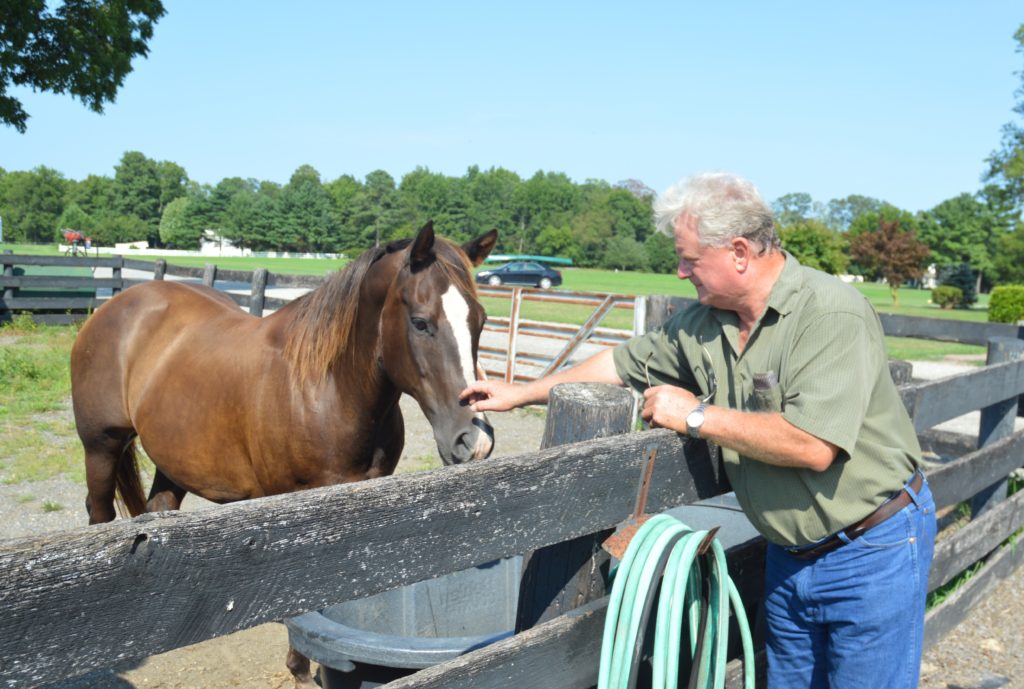
Bruce Ivins is no snowflake. He’s a 62-year-old welder and lifelong farmer who grew up amid the chickens and tractors on his family’s farm near Centreville on Maryland’s Eastern Shore.
But then his neighbor built two industrial-sized chicken houses next door, and he filed a complaint with the Maryland Department of the Environment (MDE) because he could not tolerate the clouds of ammonia, dust, and feathers from the operation’s exhaust fans. But MDE took no action against the poultry operation. He is not alone in being concerned about the lack of enforcement or oversight of the poultry industry by MDE. An investigation by the Environmental Integrity Project of more than 5,000 pages of MDE inspection reports shows that 84 percent of Maryland poultry farms inspected by the state between 2017 and 2020 failed pollution control permit requirements. But only about two percent of the poultry operations – or four total facilities, out of the 153 that failed inspections – were ever penalized by the state. All this research – and proposed solutions to the problem – are detailed in EIP’s new reports, “Stagnant Waters,” and “Blind Eye to Big Chicken.”
08/02/21: TALKING TRASH ABOUT CLIMATE CHANGE
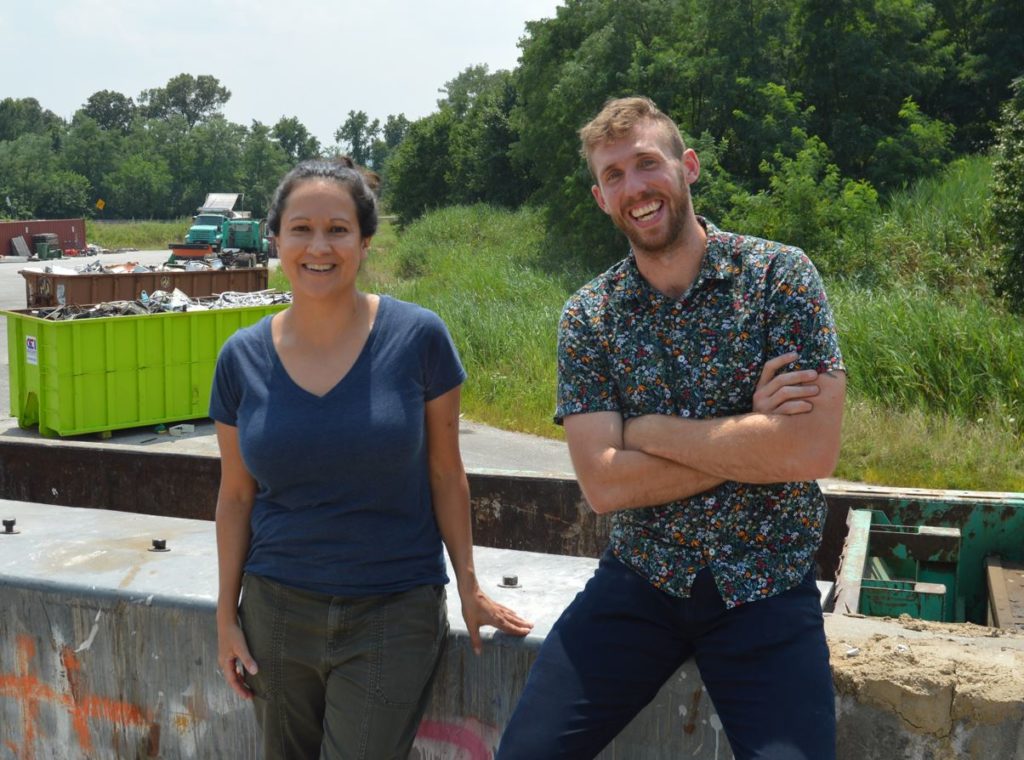
When most people think about greenhouse gas emissions, they think about gas-guzzling vehicles and coal-fired power plants. They don’t talk trash. That’s not the case with Environmental Integrity Project attorneys Ryan Maher and Leah Kelly. They recently authored a ground-breaking investigative report that revealed that Maryland’s landfills are releasing four times more methane and carbon dioxide into the atmosphere than the official state estimates. When EIP’s report, “Greenhouse Gas Emissions from Maryland’s Landfills,” was released, the Maryland Department of the Environment immediately issued a statement confirming the report’s conclusions and correcting the state’s greenhouse gas inventory. Across the country, researchers are finding far higher than anticipated methane emissions from municipal landfills and their decaying food waste – and the issue is stirring government action. Maryland is now holding a series of public meetings as it looks to issue new regulations to better control methane, a potent greenhouse gas, from dumps.
01/05/21: A LOOK AT BIDEN’S PICK TO RUN EPA AND THE CHALLENGES HE FACES

President-Elect Joe Biden has picked North Carolina’s top environmental regulator, Michael Regan, as his choice to run the U.S. Environmental Protection Agency. How has Regan performed in his job as Secretary of the North Carolina Department of Environmental Quality? And what challenges will he face rebuilding an EPA devastated by deregulation, staffing cuts, and control by industry lobbyists during the Trump Administration? We interview three experts: Derb Carter, Director of the North Carolina office of the Southern Environmental Law Center, who has extensive first-hand knowledge of Regan’s track record in North Carolina; Eric Schaeffer, Executive Director of the Environmental Integrity Project and former Director of Civil Enforcement at EPA, who has insights into how to get the EPA back on track; and Betsy Southerland, former Director of Science and Technology in EPA’s Office of Water.
12/10/20: TALKING COVID AND JUSTICE WITH DR. MUSTAFA SANTIAGO ALI
As the incoming Biden Administration makes plans for its environmental agenda over the next four years, we interview a national leader in the environmental justice movement about how the White House can prioritize protecting minority and lower-income communities that have long been neglected. Dr. Mustafa Santiago Ali, a Vice President the National Wildlife Federation, worked for 24 years at the U.S. Environmental Protection Agency until March of 2017, when he resigned because Trump wanted to eliminate EPA’s Office of Environmental Justice, which Dr. Ali helped to create. Dr. Ali talks about the need to tackle COVID-19 as a justice issue and broadly expand the scope of federal efforts to reduce air pollution and improve water quality not only in urban neighborhoods, but also rural areas across the U.S.
11/10/20: A FAMILY’S BATTLE WITH CANCER AND THE REFINERY NEXT DOOR
Charlie Reeves grew up in public housing in South Philadelphia near the oldest and largest oil refinery on the East Coast. Back in the 1970s, his father led public protests at City Hall over what he was convinced was toxic air pollution from the Sunoco Refinery. Authorities dismissed the protests and assured the neighborhood that everything was fine. Those reassurances did not ring true – especially when Charlie, his mother, and several neighbors were diagnosed with cancer, and Charlie’s mother died. Finally, the refinery (then owned by Philadelphia Energy Solutions) closed on June 21, 2019, when a massive explosion and fire at the plant sent a fireball into the sky and rattled windows for miles around.
To Charlie Reeves, the most devastating fact was what he learned six months later, when the Environmental Integrity Project revealed that air pollution monitors ringing the refinery had registered benzene – a known carcinogen – at the plant’s fence lines at concentrations averaging more than five times the federal limit (EPA’s “action level” for benzene) for an entire year. That meant that local residents like the Reeves family could have been exposed to excessive cancer risks for a long time – including months after the explosion, and potentially years before the fire. Philadelphia is one of 13 communities across the country that face potential cancer risks from excessive benzene air pollution detected at the fence lines of nearby oil refineries, according to EPA data produced for the first time in 2019 because of a lawsuit filed by the Environmental Integrity Project and allies.
08/28/20: SAILOR TURNS SLEUTH IN WAR FOR THE NATION’S RIVER
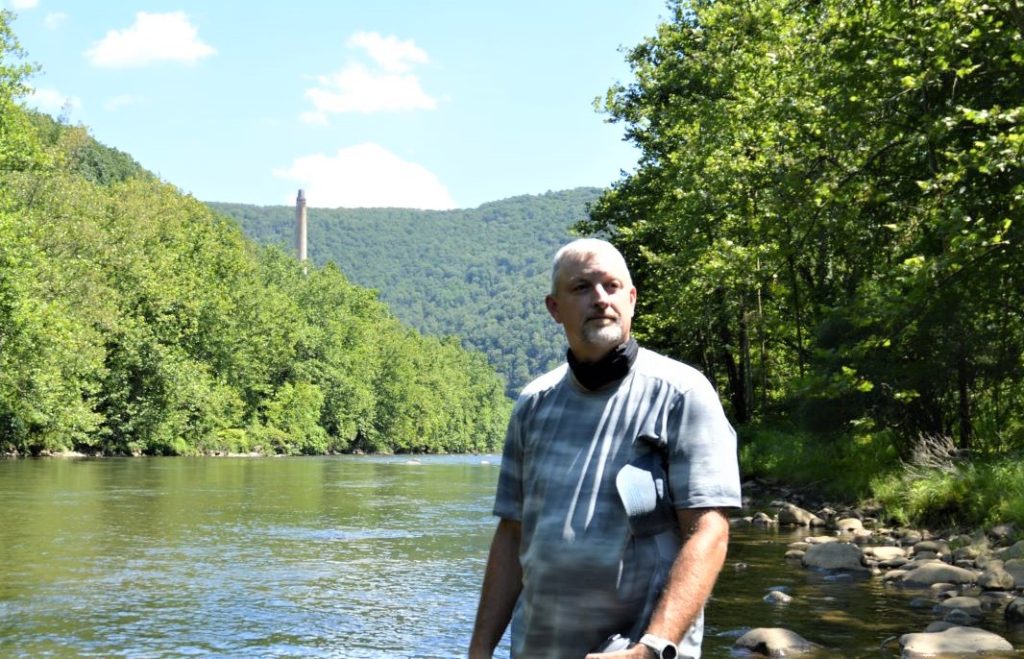
Brent Walls, the Upper Potomac Riverkeeper in Western Maryland, dedicated his life to fighting for clean water in the Nation’s River after he experienced a moment of clarity. He was serving in the U.S. Navy aboard the aircraft carrier U.S.S. Constellation when he witnessed a routine procedure during his first cruise in the Pacific Ocean. “Twice a day, once in the morning and once in the evening, the ship would slow down and a bell would ring, and everyone would gather their trash and take it to the back of the boat and just throw it over,” Walls recalled. “That just kind of made me sick, it really did.” When he got out of the Navy, Walls transformed himself into a clean water warrior. As the Upper Potomac Riverkeeper for the last 11 years, he has worked every day to document and report pollution with digital photos, water sampling equipment, and a drone he launches from a compartment on the back of his motorcycle. He’s working with the Environmental Integrity Project to take legal action to stop toxic water pollution from a closed paper mill site in Luke, Maryland, and a nearby coal storage facility.
07/06/20: TERRORISM CHARGES AGAINST PROTESTER PART OF A NATIONAL PATTERN
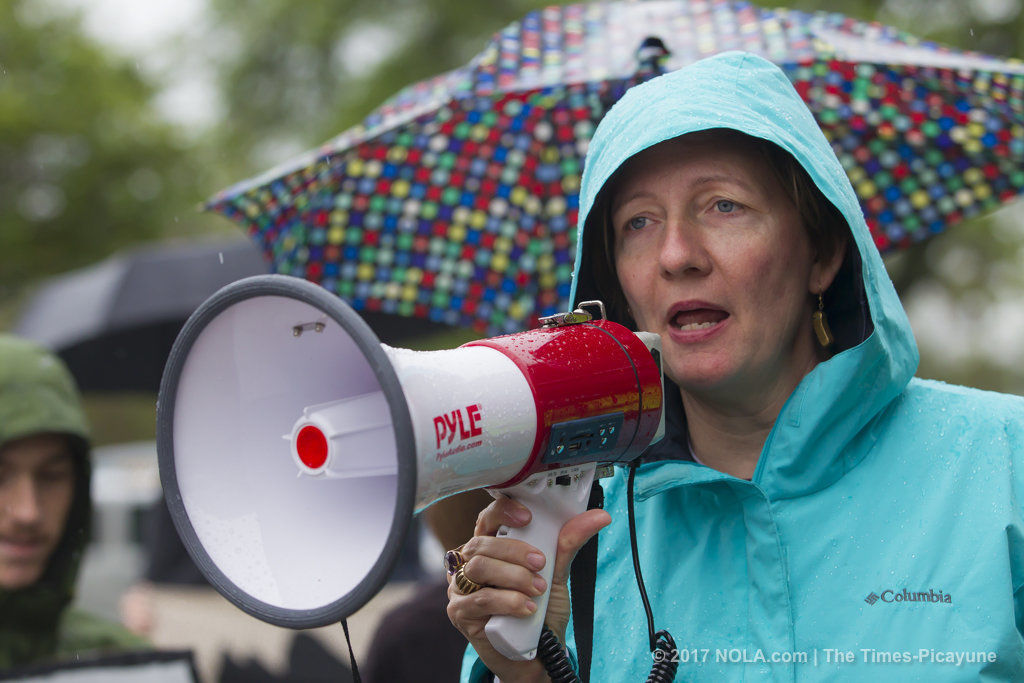
Anne Rolfes is the Founding Director of the Louisiana Bucket Brigade, a nonprofit group that, for the last two decades, has been campaigning for public health protections for mostly lower-income families living just beyond the fence lines of chemical factories. Her advocacy for air pollution controls has long made her a target for Louisiana’s powerful chemical industry. But recently, her protests against what would be North America’s largest plastics factory, proposed by the Formosa Plastics company atop a site with an historic slave burial ground in the African American community of St. James, Louisiana, provoked more than just the irritation of the political establishment. The Baton Rouge Police Department charged Rolfes with terrorism – a felony – for placing, as part of a peaceful protest of plastics industry pollution, a box with plastic waste from a Formosa plastics plant on the porch of a plastics industry lobbyist. Civil liberties experts say the charges are part of a national pattern of law-enforcement agencies, state legislatures, and even the Trump Administration attempting to criminalize dissent and peaceful protests.
04/22/20: FLEEING FROM THE MARCH OF INDUSTRIAL AGRICULTURE
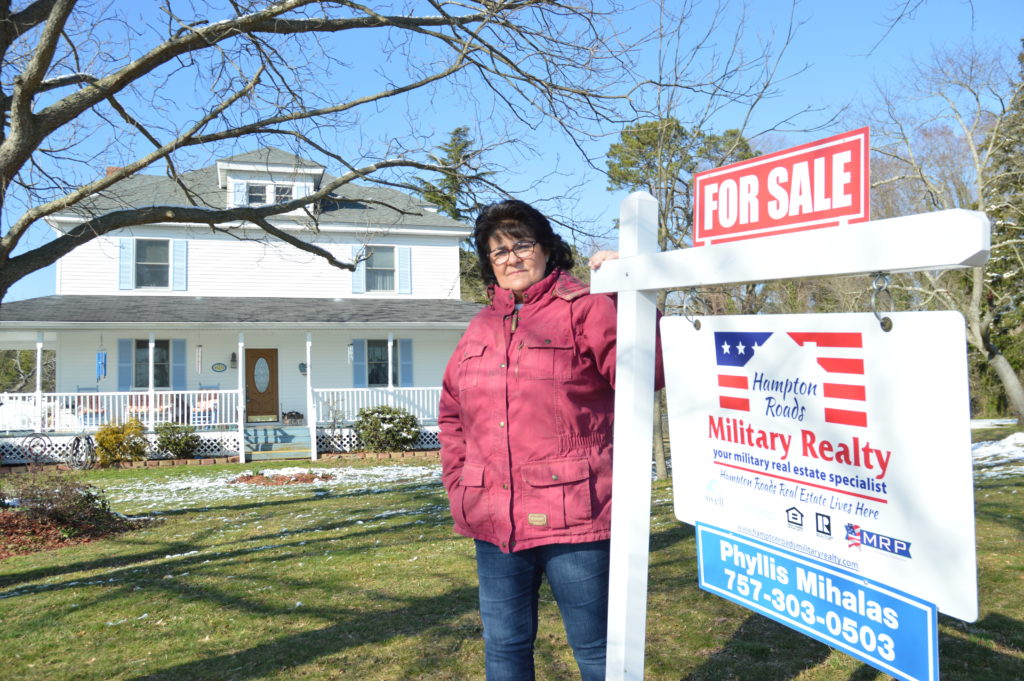
The poultry industry is growing in the Chesapeake Bay region, with a new generation of mega-sized chicken houses, birds bred to be ever larger, and more ammonia air pollution. On Virginia’s Eastern Shore, Carlene Zach, a 60-year-old retired postmaster, and her husband Peter Zach, 62, a lineman for an electric company, were in good health until a poultry farm opened next door with 24 airplane hangar-sized buildings holding a million chickens. Since then, the ammonia and fecal dust blown from the exhaust fans has drifted their windows, triggering incessant coughing, sneezing, and sore throats. After struggling to find a solution, they decided they had no option but to abandon their dream house. They sold their more than century-old, Victorian home for a $40,000 loss and moved to the mountains, feeling betrayed and abused by the industry’s march over America’s farmland. View the full report “Poultry Industry Pollution in the Chesapeake Region.”
12/20/19: LIVING WITH CHEMICAL PLANT DEATH. ONE FAMILY’S STORY.
Juan Flores grew up near Houston, the son of a refinery worker who repeatedly warned his children of the risks of going into his profession…and then died on the job. Juan became a community coordinator for nonprofit Air Alliance Houston, and now works to protect the people of Baytown and other neighborhoods from air pollution, fires, and explosions. A new report by the Environmental Integrity Project reveals that minority neighborhoods like this one are put at greater risk by severe budget cuts to pollution control programs at state environmental agencies in Texas and across the U.S.
09/25/19: WHAT’S IN THE WATER? WE TAKE A DEEP LOOK
For years, fishing guide Rod Bates has been taking families out on the Susquehanna River in Pennsylvania and letting kids swim and play in the water. Then he learned about something disturbing being piped into the river from the Governor’s Mansion and State Office Complex in Harrisburg, the state capital. The Environmental Integrity Project and Lower Susquehanna Riverkeeper investigated the outfalls. We discovered information that — when released at a press conference — sparked an interstate furor and demands for an investigation.
05/17/19: LIVESTOCK FENCING AND WATER POLLUTION
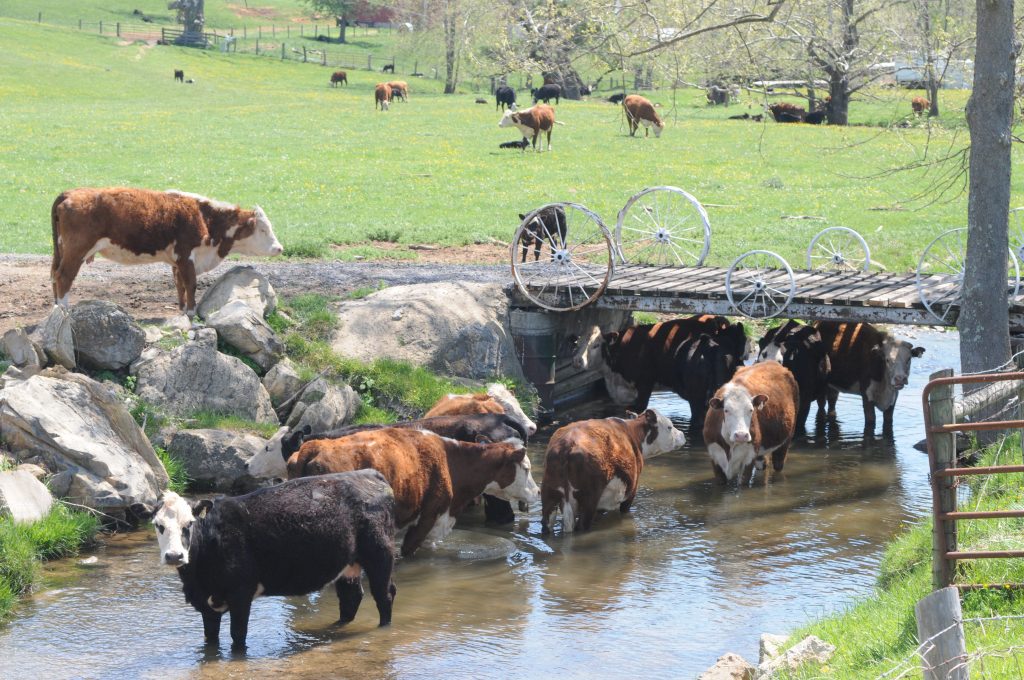
Although you might not guess it by looking at the beautiful, rolling farms in Virginia’s Shenandoah Valley, agricultural runoff is the largest source of water pollution in the Chesapeake Bay. Virginia promised EPA that it would protect 95 percent of streams through pastures with livestock fences by 2025. But EIP’s aerial study of Virginia’s two largest agricultural counties found that only 19 percent of farms with livestock are actually fencing their animals out of waterways, contributing to bacteria, nutrient pollution, and algae blooms in the Shenandoah River. (Photo Shenandoah Riverkeeper)
04/03/19: COAL’S POISONOUS LEGACY
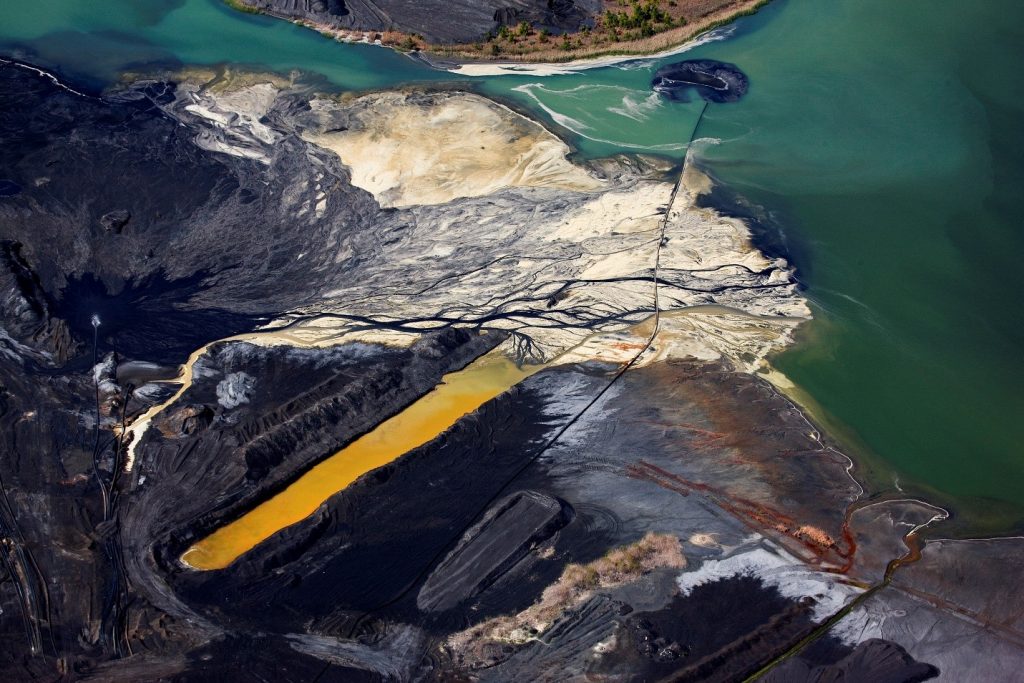
For decades, coal-fired power plants have been dumping millions of tons of waste every year — coal ash and scrubber sludge — into unlined pits. The Environmental Integrity Project examined monitoring data available for the first time in 2018 and found that 91 percent of 265 plants across the U.S. are leaking toxic pollutants including arsenic, a carcinogen, into groundwater. This pollution sometimes contaminates local rivers, streams, and drinking water. (Photo J. Henry Fair/South Wings)
03/11/19: ENVIRONMENTAL ENFORCEMENT UNDER TRUMP
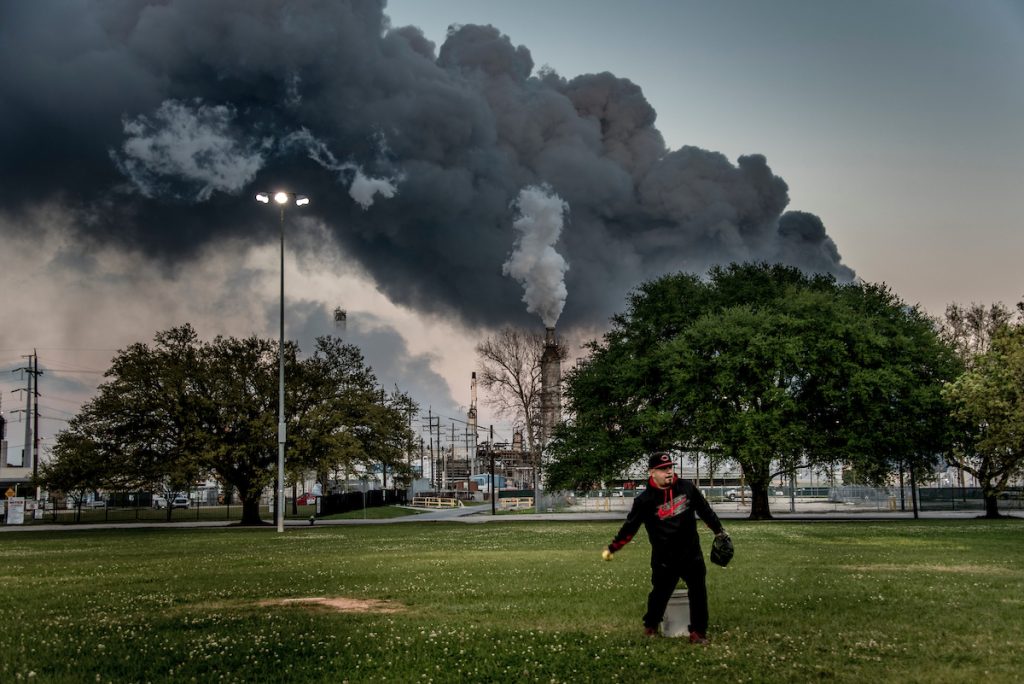
The Environmental Integrity Project examined two decades of EPA data and concluded that environmental enforcement under the Trump Administration in 2018 set record lows for penalties against polluters, as well as for people charged with environmental crimes. In our report, “Less Enforcement: Communities at Risk,” we give 10 examples across the U.S., from Louisiana to Minnesota, of major environmental violations that the administration has failed to crack down on that threaten the health of local communities. (Photo Karen Kasmauski/International League of Conservation Photographers)
10/18/18: WATER POLLUTION FROM SLAUGHTERHOUSES
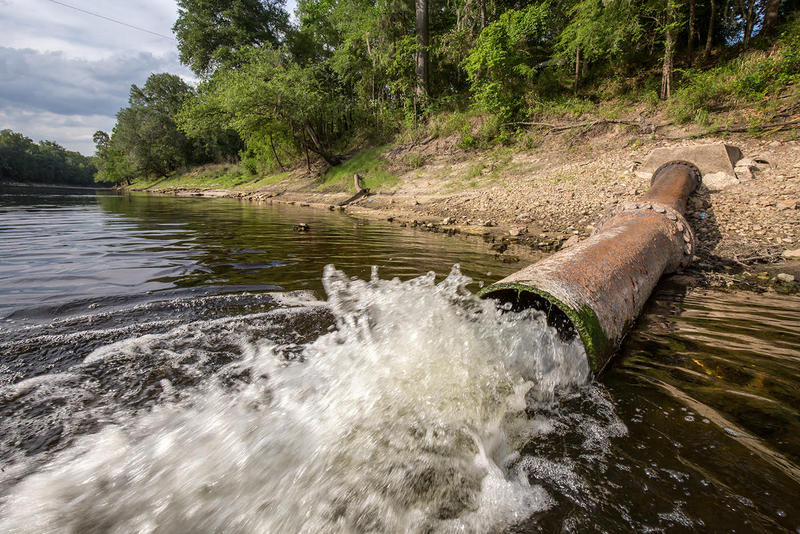
Our investigation of EPA records found that many large meat processing plants in the U.S. — often owned by international companies based in China, Brazil, Arkansas or elsewhere — are violating the federal Clean Water Act, with little enforcement and few penalties. This is polluting rivers, causing fish kills, and contaminating drinking water supplies, often in small, rural, lower-income communities with high minority populations, making it a real environmental justice issue.
Inspired to action by EIP’s report “Water Pollution from Slaughterhouses”, U.S. Senator Richard Durbin of Illinois is now demanding that the EPA strengthen its outdated water pollution standards for slaughterhouses nationally. In the photo above, wastewater from a Pilgrim’s Pride meat processing plant in Live Oak, Florida, pours into the Sewanee River. (Photo from John Moran/Environment Florida)[/vc_column_text][/vc_column][/vc_row]

